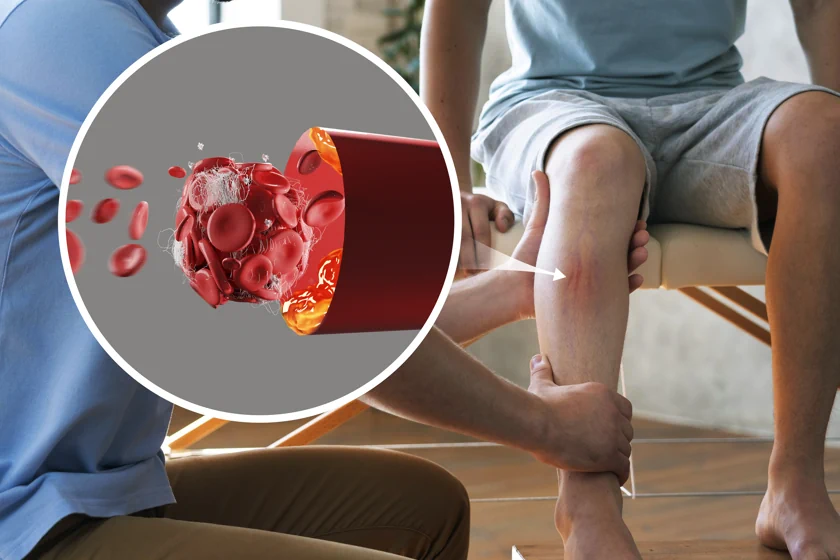
Role of Genetics in Varicose Veins
Varicose veins, often considered a genetic inheritance, have startling statistics to support their hereditary nature. Research suggests that if one parent suffers from varicose veins, the likelihood of their child developing them rises to 40%. Astonishingly, if both parents have varicose veins, the risk escalates to a staggering 90%.
These statistics paint a grim picture, emphasizing the formidable influence of genetics in determining one’s susceptibility to this vascular affliction. Moreover, studies have revealed specific genetic variations associated with varicose veins, further cementing the intricate link between genes and venous health.
Brace yourself as we embark on a journey through the shadowy corridors of genetic predisposition, shedding light on the unnerving truth behind varicose veins and the role your genes play in shaping this vascular nightmare.
Genetics and Varicose Veins: What’s the Connection?
Several genetic mechanisms have been implicated in the development of varicose veins. One such mechanism involves alterations in the extracellular matrix, which provides structural support to blood vessels. Genetic variations affecting the integrity of the extracellular matrix can weaken vein walls, making them more susceptible to dilation and valve dysfunction, key features of varicose veins.
Abnormalities in smooth muscle cells, another genetic factor, can also contribute to the pathogenesis of varicose veins. Smooth muscle cells play a crucial role in regulating the contraction and relaxation of blood vessels. Genetic mutations affecting the function of these cells can disrupt the normal dynamics of venous circulation, leading to the formation of varicose veins.
Furthermore, variations in genes associated with vein wall integrity have been implicated in the genetic predisposition to varicose veins. These genes encode proteins involved in maintaining the structural integrity of vein walls and regulating vascular tone. Genetic alterations affecting the expression or function of these proteins can compromise the structural integrity of veins, making them more prone to dilation and valve incompetence.
While genetic predisposition undoubtedly plays a significant role in the development of varicose veins, it is essential to recognize that genetics alone do not determine one’s fate. Lifestyle factors and environmental influences also play a crucial role in shaping venous health. Maintaining a healthy weight, staying physically active, avoiding prolonged sitting or standing, and wearing compression stockings can all help reduce the risk of varicose veins, even in individuals with a genetic predisposition.
Understanding the genetic basis of varicose veins holds promise for the development of more personalized and effective treatment strategies. By identifying specific genetic variations associated with varicose veins, researchers can potentially tailor treatment approaches to target underlying molecular pathways involved in the pathogenesis of the condition. This precision medicine approach may lead to better outcomes and reduced risk of complications for individuals affected by varicose veins.
Maintaining Vascular Health with Varicose Vein History
Maintaining good vascular health is not only essential for preventing varicose veins but also for warding off a myriad of other vascular conditions that can affect your overall well-being. However, if you have a family history of varicose veins, being proactive and extra vigilant about your vascular health becomes paramount.
Regular exercise is one of the cornerstones of vascular health. Engaging in cardiovascular activities such as walking, jogging, swimming, or cycling helps promote blood circulation throughout your body, including your legs where varicose veins commonly develop. Exercise also strengthens the muscles that surround your veins, aiding in the efficient return of blood to the heart and reducing the risk of venous insufficiency, a precursor to varicose veins.
Maintaining a healthy weight is another crucial aspect of vascular health. Excess weight puts added pressure on your veins, particularly those in your lower extremities, making them more prone to dilation and valve dysfunction. By adopting a balanced diet and incorporating regular exercise into your routine, you can achieve and maintain a healthy weight, thereby reducing the strain on your veins and lowering your risk of varicose veins.
Avoiding prolonged sitting or standing is essential for preventing varicose veins. When you sit or stand for extended periods, blood can pool in your leg veins, increasing venous pressure and contributing to the development of varicose veins. To alleviate this risk, try to take breaks and change positions frequently throughout the day. If your job requires long periods of sitting or standing, consider using a footrest, taking short walks, or performing simple leg exercises to promote blood circulation and reduce venous congestion.
Also read – Best Workouts for blood Circulation
Wearing compression stockings can also play a significant role in improving vascular health and reducing the risk of varicose veins. These specially designed garments exert graduated pressure on your legs, helping to support venous blood flow and prevent blood from pooling in your lower extremities. Compression stockings come in various strengths and styles, so it’s essential to consult with a healthcare professional to determine the most suitable option for your needs.
In addition to these lifestyle modifications, it’s crucial to prioritize regular check-ups with a healthcare provider, especially if you have a family history of varicose veins. Your doctor can assess your risk factors, perform diagnostic tests if necessary, and provide personalized recommendations for maintaining optimal vascular health.
FAQs About Varicose Vein and Genetics
Varicose veins have a strong genetic component, with family history being a significant risk factor. Individuals with relatives who have varicose veins are more likely to develop them themselves.
Genetics has a substantial role in determining susceptibility to varicose veins. Studies suggest that genetic factors can impact vein structure and function, increasing the likelihood of developing varicose veins.
While genetics contribute to varicose veins, preventive measures such as regular exercise, maintaining a healthy weight, and wearing compression stockings can help reduce the risk. However, individuals with a family history should remain vigilant about their vascular health.
Currently, there isn’t a specific genetic test to predict varicose veins. However, understanding your family history and discussing it with a healthcare provider can help assess your risk and guide preventive measures.
The likelihood of inheriting varicose veins depends on various genetic factors. Having one parent with varicose veins increases the risk while having both parents affected significantly elevates the chances. However, lifestyle factors also play a role in their development.
Conclusion
In conclusion, the link between varicose veins and genetics is undeniable, highlighting the significant role that family history plays in predisposing individuals to this vascular condition. While genetic factors are influential, it’s crucial to remember that lifestyle choices and preventive measures also contribute to vascular health.
For personalized guidance and expert care, consider reaching out to Dr. Sumit Kapadia. As a highly regarded vascular specialist, Dr. Kapadia can assess your risk factors, offer tailored recommendations, and provide advanced treatment options to address varicose veins effectively.
Take control of your vascular health today by scheduling a consultation with Dr. Sumit Kapadia. Begin your journey towards healthier veins by contacting us to book an appointment. Don’t wait—start prioritizing your vascular well-being now.

MBBS, MS, MRCS, DNB-Fellow
Dr. Sumit Kapadia
Dr. Sumit Kapadia / MR KAPADIA SUMIT a gold-medalist from Baroda Medical College, obtained his general surgical training and senior residency from SSG Hospital, Vadodara.

MBBS, MS, MRCS, DNB-Fellow
Dr. Sumit Kapadia
Dr. Sumit Kapadia / MR KAPADIA SUMIT a gold-medalist from Baroda Medical College, obtained his general surgical training and senior residency from SSG Hospital, Vadodara.



